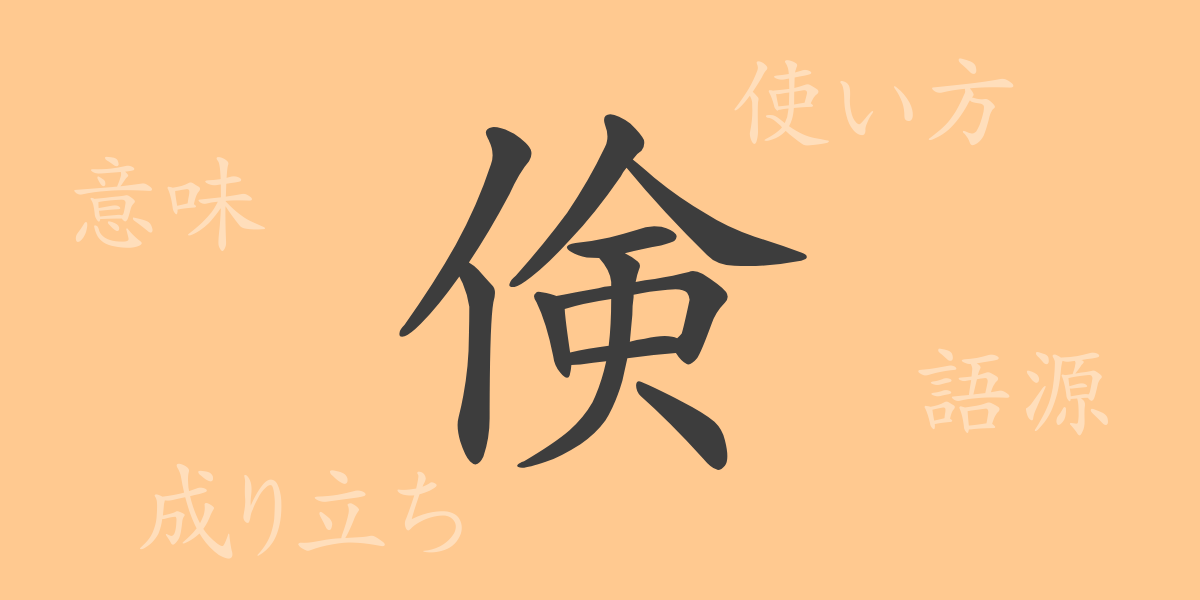The beauty of Japanese writing lies in its complexity and depth. Among the common kanji characters, “倹” (けん, ken) is one that, while not frequently used in daily life, holds significant meaning and philosophy relevant to modern society. This article will explore the rich world of “倹” (けん, ken) from its origins to its usage, idioms, and proverbs, shedding light on its importance and application.
Origin of 倹
The kanji “倹” (けん, ken) traces its roots back to ancient Chinese oracle bone script. Originally, the character “兼” (けん, ken) was used, which later evolved into “倹” (けん, ken). The character “兼” (けん, ken) combines “兩” (りょう, ryo), meaning two, with “儉” (けん, ken), meaning frugality or saving energy. This combination implies the concept of “making two into one,” connecting to the idea of efficiency and thriftiness. Thus, “倹” (けん, ken) is rooted in the philosophy of valuing efficiency and conservation.
Meaning and Usage of 倹
The primary meaning of “倹” (けん, ken) is “to economize” or “to save energy.” This kanji is used to express the attitude of avoiding waste and living frugally. It is relevant not only in personal life but also in business management and national policies, where the idea of conserving resources is essential. Common uses include terms like “倹約” (けんやく, ken’yaku) meaning “thriftiness” or “economy,” and “倹しい” (つましい, tsumashii) meaning “frugal.” These terms are often used as adjectives or nouns.
Readings, Stroke Count, and Radical of 倹
Understanding the readings and structure of “倹” (けん, ken) is fundamental to grasping its meaning.
- Readings: On’yomi – ケン (けん, ken); there is no Kun’yomi reading for this character.
- Stroke count: 13 strokes
- Radical: 亻 (にんべん, ninben) which relates to people.
Idioms, Proverbs, and Phrases Using 倹
There are several idioms and phrases that include “倹” (けん, ken), all relating to the concepts of thriftiness and simplicity. Here are some examples:
- 倹約 (けんやく, ken’yaku): Conserving resources or money; avoiding waste.
- 倹しい (つましい, tsumashii): Modest or frugal expenditure.
- 倹約家 (けんやくか, ken’yakuka): A person who is thrifty and values conserving resources.
- 倹約倹約 (けんやくけんやく, ken’yaku ken’yaku): Emphasizing extreme thriftiness and avoidance of waste.
These idioms and phrases are useful for expressing thriftiness and efficiency in both daily life and business contexts.
Conclusion About 倹
The kanji “倹” (けん, ken) plays a crucial role in expressing the values of thriftiness and efficiency. From its origins to its modern usage and the idioms it appears in, “倹” (けん, ken) continually reminds us of the importance of conserving resources and avoiding waste. This concept is vital not only for economic reasons but also for promoting a sustainable lifestyle in today’s world. The spirit of “倹” (けん, ken) is becoming increasingly significant as we strive for sustainability and responsible resource management.

























